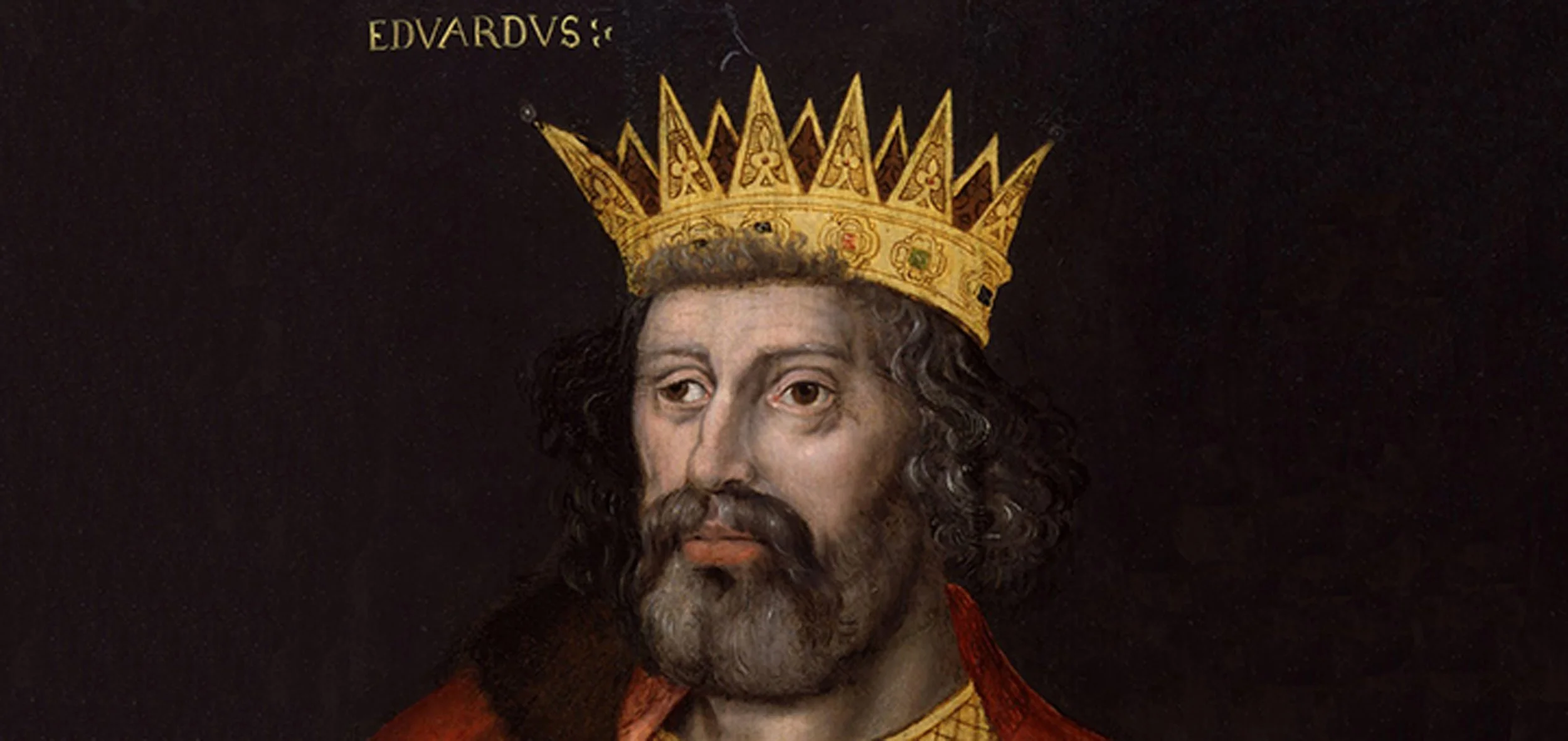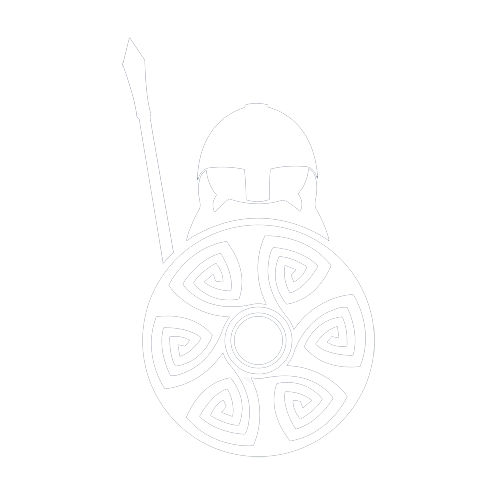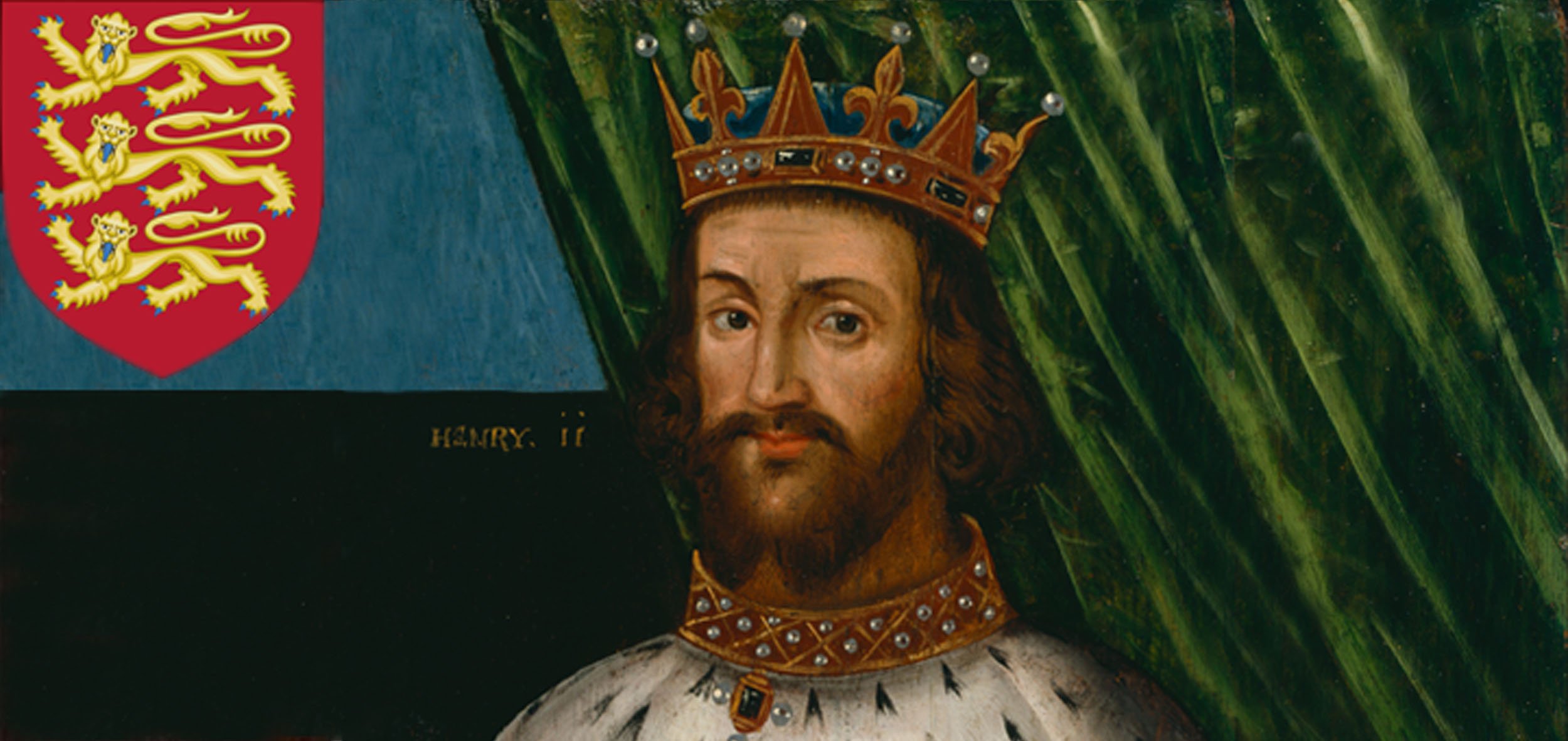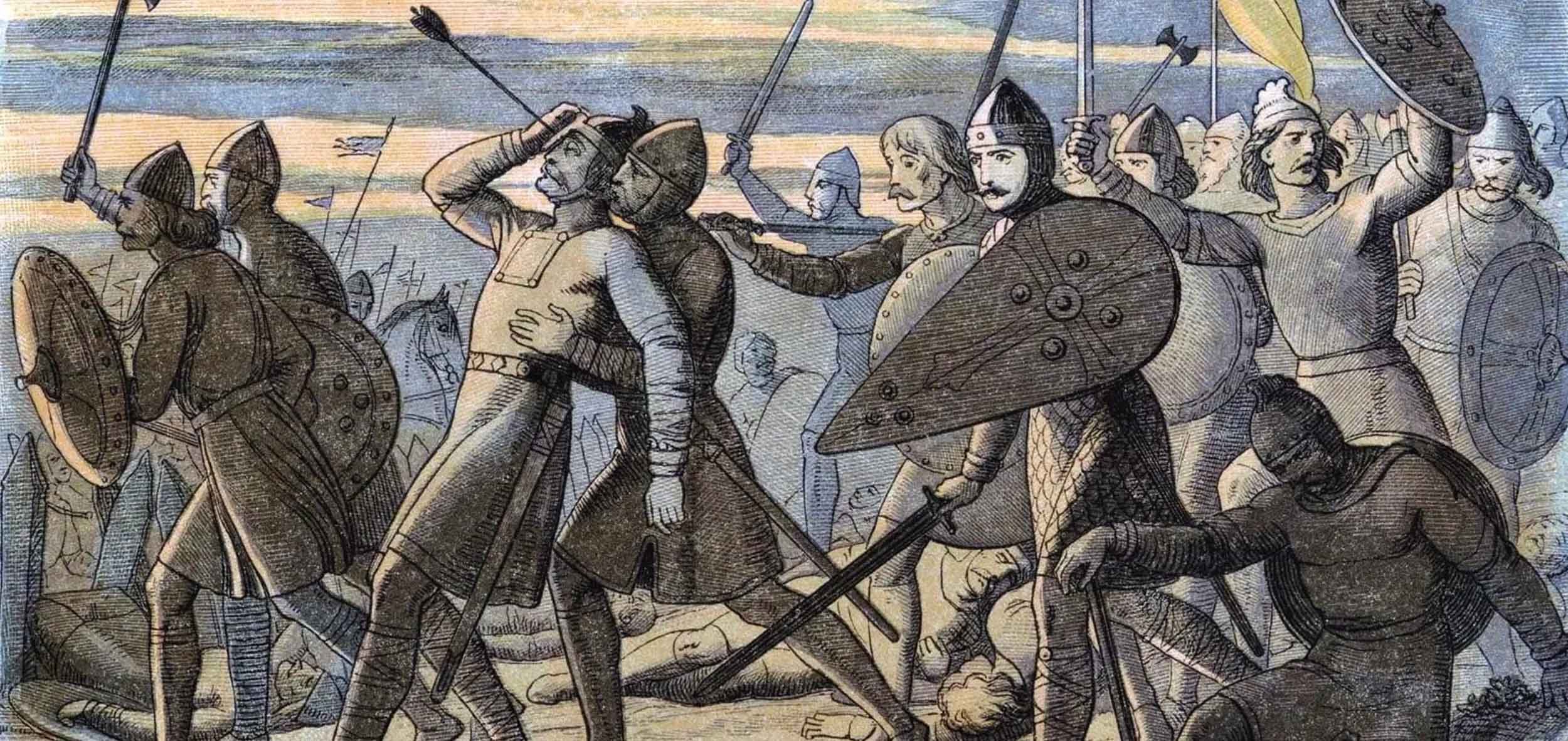Kings of Medieval England
Kings of medieval England have ruled for over 700 years, between 757 to 1485 AD. In the early days, England did not exist, instead the land was broken up into warring kingdoms, each with its own ruler. Alfred the Great had a dream of a united England, a king of all of England.
Alfred's son and daughter, Edward the Elder and Aethelflaed of Mercia made incredible gains towards this dream, but ultimately, it would be Alfred's grandson, Aethelstan, who would become the first King of all of England.

House of York (1461-1485)
King Richard III was the fourth son of Richard, Duke of York and Cecily Neville. His reign is blighted with unproven murders, which began when he seized the throne from his nephew, Edward V. The mysterious disappearance of the young princes in the Tower, and the nature of his physical appearance, Richard III’s reputation has suffered harshly through time. But with no evidence to support these crimes, he should be remembered as a powerful duke, king and warrior, which ultimately led to his death on the battlefield, fighting in the last battle of the Wars of the Roses.
King Edward V was the son of Edward IV and Elizabeth Woodville. At just 12 years old, Edward V accedes to the throne of England, following the death of his father. His uncle, Richard Duke of Gloucester, is declared Protector of England, until Edward comes of age. But tragedy dominates his short life and reign, his legitimacy is questioned, and his uncle seizes the throne. Within a few short months, Edward and his younger brother Richard, disappear at the Tower of London, leading to the long standing, medieval mystery ever since.
King Edward IV was the son of Richard, Duke of York and Cecily Neville. A tall, powerfully built king, Edward IV spent his two reigns fighting in the Wars of the Roses, in some of the bloodiest battles ever seen in England. Despite persistent rebellions from his brother, and disapproval of his marriage, King Edward IV ruled over a prosperous economy, once the fighting died down. His death came suddenly, and with his son and heir, Edward V, being too young, Edward’s brother, Richard became Lord Protector of England. This would lead to the final tale of medieval England.
House of Lancaster (1399-1471)
King Henry VI was the son of Henry V and Catherine of Valois. A gentle, kind, pious and generous king, Henry VI was very different to past warrior kings. His reign was long, but fraught by insanity and civil war. Despite the valiant efforts of his wife, Queen Margaret of Anjou, to keep him on the throne, Henry VI submitted to Richard, Duke of York as Protector of the Realm. This ultimately led to the famous Wars of the Roses, between the houses of Lancaster and York. Henry VI lost his crown to the Duke’s son, Edward IV, but it returned briefly, before being removed once more. He lost his son before losing his own life.
King Henry V was the son of Henry IV & Mary de Bohun. He began his reign reviving the Hundred Years War with France, taking back lost ancestral lands. A chivalric, warrior king, Henry V was an excellent military leader, famously defeating the vast French army at the Battle of Agincourt. Deeply religious and merciful to his enemies, King Henry V is one of England’s greatest kings, despite his short reign, and the last true medieval warrior king. King Henry V died a month before being crowned king of France, and tragically would never meet his only child, Henry VI, the future king of England and France.
King Henry IV was the son of John of Gaunt and Blanche of Lancaster, and the first Lancastrian king. He began his reign usurping the unpopular king, Richard II, but spent the next 13 years defending his crown from rebellions and assassination attempts. Incessant opposition from the powerful Percy family and the ambitious Prince of Wales, Owain Glyndwr, wore down King Henry IV and the treasury. Talks of abdication from the Archbishop of Canterbury, and growing support for Henry IV’s son, Henry V, drove the king to exhaustion and eventually his death.
House of Plantagenet (1216-1399)
King Richard II was the second son of Edward the Black Prince and Joan of Kent. He began his reign at the tender age of 10. At just 14, he successfully faced down the Peasants' Revolt, but this encouraged his inner belief that kings should rule with absolute power. A dogmatic, extravagant and despotic ruler, Richard II failed to gain the loyalty of his barons. King Richard II was overthrown and forced to abdicate, leading to his imprisonment and death.
King Edward III was born at Windsor Castle on 13 November 1312. He was the first son of Edward II and Isabella of France. Edward acceded his father at the tender age of 14, and went on to become one of England's most popular and successful kings.
King Edward II was born in Caernarfon Castle, Wales on 25 April 1284. He was the fourth son of King Edward I and Eleanor of Castile. Edward's three older brothers died during childhood, leaving him as heir to the throne of England. In 1301, when Edward was just 16, his father bestowed the title 'Prince of Wales' onto him. Later, Edward would grow to become a popular figure in Wales, but would fail to do so in England.
King Edward I was born in Westminster on 17 June 1239, and was the eldest son of King Henry III and Eleanor of Provence. He was named after his father's favourite saint, King Edward the Confessor, a saxon name which was not often given to aristocracy after the Norman conquest.
King Henry III was born in Winchester Castle on 1 October 1207, the eldest son of King John and Isabella of Angouleme. At the tender age of nine, his tyrannical father John died, and Henry of Winchester became King Henry III of England.
House of Angevin (1154-1216)
King John was the fourth and youngest legitimate son of Henry II and Eleanor of Aquitaine. He was born on Christmas Eve 1166 at Beaumont Palace in Oxford, and was soon moved to the Abbey of Fontevrault in Anjou, to lead a life in the church. Even at this young age, John was petulant, unstable, spoilt and cruel. His red hair matched his red-faced fury, when he flew into a classic Plantagenet rage.
King Richard I was the third son of Henry II and Eleanor of Aquitaine, and the most successful. Favoured by his mother, King Richard I became an outstanding warrior and something of a national hero. A far cry from his tyrannical younger brother, John. Richard became known as the Lionheart, or Coeur de Lion for his bravery and courage in battle. Particularly so with his victories against Saladin and the Saracens, during the Third Crusade.
King Henry II was the first in a long line of Plantagenet kings of England. Also known as Henry Plantagenet, Curtmantle or FitzEmpress, Henry was the son of Matilda and Geoffrey of Anjou, and grandson of King Henry I. He grew to be a charismatic, intelligent man, who could speak many languages, which proved useful when communicating across his multi-lingual territories as king.
House of Blois (1335-1410 & 1142-1154)
The king, Stephen of England, was not nominated as heir to the throne of England. His cousin, Matilda, who was Henry I's daughter, was instead. Matilda (or Maud as she is sometimes known) had the strongest claim, and her father rallied for an oath to be sworn by his Anglo-Norman barons, before his death, that she would become Queen of England.
House of Normandy (1066-1135)
King Henry I of England was the youngest son of William the Conqueror. He was also the only Norman king who could read and write. This education came from his upbringing in the church, unlike his siblings. Henry I had a long and successful reign in England, and due to his ambitious nature, he expanded his kingdom into Normandy.
King William Rufus was the third, and possibly favourite son of the Norman conqueror William I. After an unusual set of circumstances, William inherited the throne of England at the age of 30, despite having two older brothers, Robert and Richard.
William the Conqueror, the Norman invader, defeated the last Anglo-Saxon King of England, Harold II Godwinson, in the famous Battle of Hastings, in 1066. He was sometimes known as William the Bastard and previous to his victory in Hastings, William Duke of Normandy.
House of Godwin (1066)
Harold Godwinson, a wealthy, powerful man who inherited money and titles from his father, Godwin Earl of Wessex, upon his death in 1053. Harold Godwinson dedicated his life to serving King Edward the Confessor unreservedly, soon becoming indispensable to the King. Then, when Edward died in 1066, Harold was very quickly crowned king. However, as history now bares its scars, Harold Godwinson's reign would not last long.
House of Denmark (1013-1014 & 1016-1042)
King Harthacnut was the only son of Cnut the Great and Emma of Normandy. He was usurped to the throne of England by his half-brother, Harold I Harefoot, who dies a few years later. Harthacnut has him exhumed, beheaded and cast into a marsh! His short reign was most notable for tax increases during poor harvests, civil unrest and dying while toasting the health of a bride.
King Harold I Harefoot was the eldest son of Cnut the Great and Aelfgifu of Northampton. He inherited the throne while his brother, the preferred heir Harthacnut, was away in Denmark. During his reign, Harold struggled for power, clashing with the church. He died while his brother was preparing to invade England, to take back his rightful throne.
King Cnut the Great was the second son of Sweyn Forkbeard and Gunnhilde of Poland. He served in his father’s army as a teenager in England, gaining valuable experience that would later serve him well. Cnut was an excellent leader, with both the ferocity of a powerful warlord and the maturity of a great king. His determination and military might enabled him and his family to become kings of England and Scandinavia, in one of the great dynasties of the time. But, as with many before him, his power and empire would not last.
King Sweyn Forkbeard was the son of Harald Bluetooth and Gyrid, and proclaimed king of England for just 40 days from Christmas 1013-February 1014. He was never crowned. A vicious and dangerous Viking, Sweyn led a life of violence, not only against his father, but also the English. His brutality and revenge for his sister’s murder, enabled him to captured London, forcing Aethelred II to flee. But his reign did not last long, as he died a few weeks later falling of his horse at Gainsborough, Lincolnshire.
House of Wessex (802-1013 & 1014-1016 & 1042-1066)
Edward the Confessor, son of Aethelred the Unready and Emma of Normandy, had grown up in exile in Normandy after the Viking invasion of 1013. Although born an Anglo-Saxon, he spent much of his life in Normandy, which had made him essentially a Norman.
King Edmund II (Ironside) was the son of Aethelred II the Unready and Aelfgifu, and king of England for just 7 months from April-November 1016. His reign was short and violent, which earned him the epithet ‘Ironside’, after resisting a vast Danish invasion, led by Cnut the Great and 10,000 men. Despite his valour, Edmund was eventually forced to share English rule with Cnut, after the decisive defeat at Assandun. Edmund died soon after, possibly assassinated, and was succeeded by Cnut the Great.
King Aethelred II (Æthelred or ‘Noble Council’) ('the Unready') was the younger son of Edgar the Peaceful and Aelfthryth, and king of England from 978-1013 and again from 1014-1016. Persistent Viking attacks, poor council and a lack of military ability plagued Aethelred II's reign. He lost the support of those around him, and the morale of the country. He was ultimately acceded by the Viking, Sweyn Forkbeard, who happened to die 3 months later. To which, Aethelred II was recalled to conditionally rule for 2 more years, until his death.
King Edward ('the Martyr') was the eldest son of Edgar the Peaceful and Aethelflaed, and king of England from 975-978. Chaos, rebellion and ill luck dominated Edward's reign. He faced accession disputes, famine and uprising from his father's land grants to the church. Just 2 years into his reign, Edward is murdered at Corfe Castle. Later, the church would recognise him as a saint and a martyr.
King Edgar ('the Peaceful') was the second son of Edmund I and Aelfgifu of Shaftesbury, and king of England from 959-975 and of Mercia from 957-959. An excellent ruler, Edgar achieved peace, stability and prosperity across his kingdom, and faced no invasions from the Vikings. He reformed the church, brought in a new currency and created the counties we know today. But there was a darker side to him, and his affections for women brought out the worst of it.
King Eadwig ('the All-Fair') was the elder son of Edmund I and Aelfgifu of Shaftesbury, and king of England from 955-957 and of Wessex from 957-959. A handsome but foolish king, he lost the favour of his court and the church. Powerful ealdormen soon left to support his younger brother. Mercia and Northumbria were lost, and Eadwig died suspiciously at just 18, only 4 years into his reign.
King Eadred was the younger son of Edward the Elder and his third wife, Edgiva, and king of England from 946-955. Another vigorous warrior king, Eadred battled with the Norsemen of York, losing and regaining the kingdom during his reign. King Eadred suffered from a stomach illness, which would cut his life short in 955, at the age of 32.
King Edmund I 'the magnificent' was the elder son of Edward the Elder and his third wife, Edgiva, and king of England from 939-946. Inheriting the expanded realm of England, Edmund initially lost York and Cumbria from the Norse and Scots, but through peace negotiations, baptisms and military skill, he won them back again. Edmund's reign was short, as he was killed in his own hall by an outlaw at the age of 25.
King Aethelstan (Æthelstan or ‘Noble Stone’) was the son of Edward the Elder, and king of all England from 925-939. Another of the conquering kings of Wessex, Aethelstan expanded his father's kingdom, gave much to the church and enhanced the power and prestige of kingship. Forming allies across Europe, and ruthlessly subjugating Wales, the Scots and the Danes, Aethelstan was one of England's great kings.
King Edward the Elder was the son of Alfred the Great, and king of Wessex from 899-924. He was also nominally King of England from 918-924, through his success at overthrowing Viking settlements across the Danelaw.
In 871, Alfred the Great ruled over the kingdom of Wessex (871-899), which was the sole English territory kept from the invading Vikings. He ensured a single Saxon stronghold remained steady and strong, in an increasingly Viking England. Alfred the Great is the only English king to be given the glorified nickname "the Great", and indeed he deserved it.
King Aethelbert (Æthelbert or 'Magnificent Noble') was the second eldest surviving son of Aethelwulf, and King of Wessex from 860-866. He, like his brother before him, had a short reign and life, having only lived into his early 30s when he died. During his reign, Aethelbert is most famous for not sending an army to engage the 'Great Heathen Army' of Vikings, led by Ragnar Lodbrok's sons, who landed at Thanet in 864.
King Aethelbert (Æthelbert or 'Magnificent Noble') was the second eldest surviving son of Aethelwulf, and King of Wessex from 860-866. He, like his brother before him, had a short reign and life, having only lived into his early 30s when he died. During his reign, Aethelbert is most famous for not sending an army to engage the 'Great Heathen Army' of Vikings, led by Ragnar Lodbrok's sons, who landed at Thanet in 864.
King Aethelbald (Æthelbald or 'Noble Bold') was the eldest surviving son of Aethelwulf, and King of Wessex from 855-860. He had a short reign, and a short life, having only lived into his 20s when he died. During his reign, Aethelbald is most famous for refusing his own father's entry to his kingdom, when Aethelwulf returned from Frankia with his new wife.
King Aethelwulf (Æthelwulf or ‘Noble Wolf’) was the son of Egbert, and King of Wessex from 839-858. Before becoming king, his father had sent him to conquer Kent, Sussex and Essex, and in doing so, he became king of Kent. Then in 839, he succeeded his father as king of Wessex too. Aethelwulf looked for alliances over conquest, and allied with Mercia against the many Viking invasions. A pious and generous man, he decided to give the church one tenth of his lands to receive God's favour, in the face of the attacking pagans. But, after returning from Rome, he would discover his kingdom lost, and reputation tarnished.
King Egbert (Ecgberht) ruled from 802-839, and is thought to be descended from the founder of Wessex, Cerdic (514-534), despite being the son of a Kentish noble. He was sent into exile by Offa, and resided at the court of Charlemagne. Upon his return, Egbert took back Wessex and conquered Mercia, Kent and Cornwall. Later, he was acknowledged as ruler of Northumbria, East Anglia and Sussex and would become known as Bretwalda, ruler of the British.
House of Mercia (757-796)
King Offa was the most powerful ruler of Mercia from 757-796. He is best known for the vast defensive earthwork, Offa's Dyke, which was built along the Welsh/English border. Self-proclaimed King of the English (Englisc), he defeated Kent, the East and West Saxons and the Welsh to become overlord of southern England.









































